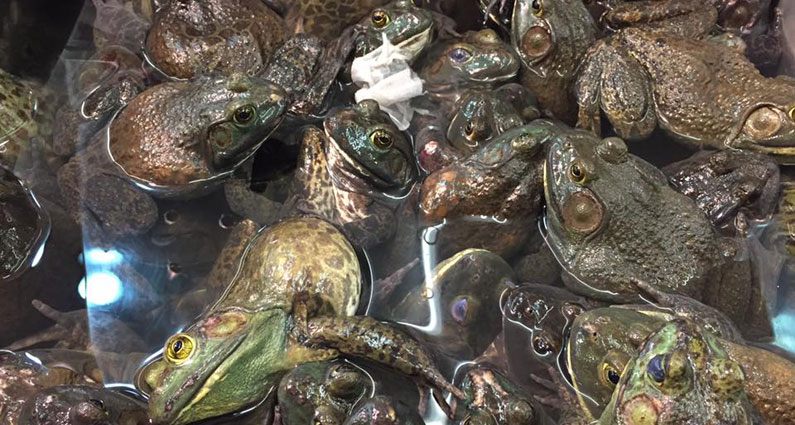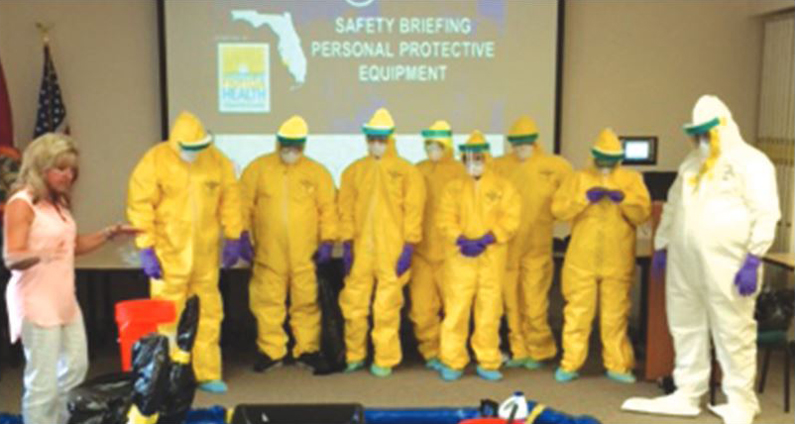September 2, 2015 | News Releases
For Immediate Release: September 2, 2015
(Miami, FL) — Activists with the Animal Rights Foundation of Florida (ARFF) will protest curbside at Miami International Airport against the transport of monkeys to laboratories. The protest will target Air France, the only major airline that continues to be involved in the cruel international trade in primates.
WHEN: Wednesday, September 2 from 4:00-5:30pm
WHERE: Miami International Airport, South Terminal, Concourse H, 2nd Level
(The airport has permitted ARFF to protest in “First Amendment zones” outside the terminal building.)
In 2014, Air France transported thousands of monkeys from the African island of Mauritius to the U.S. to be used in experiments. For these highly intelligent and sensitive animals, the long-distance journey to a U.S. laboratory is traumatic.
There is a growing list of airlines that refuse to transport monkeys for the research industry. Some of the airlines that have made this compassionate decision include American Airlines, United Airlines, Delta Air Lines, British Airways, Air Canada, El Al and Korean Air.
“The international trade in primates causes intolerable cruelty. Air France plays an important role in this horrible trade,” said ARFF Campaigns Coordinator Nick Atwood.
# # #
August 19, 2015 | News & Information

Dolphins and orcas in the wild spend most of their time below the surface of the water. But in captivity, they can often be found floating motionlessly at the surface of their shallow pools. As a result, captive dolphins and orcas are at risk of sunburn (sunburn is not only painful, but can lead to a dangerous infection).
On July 14, the U.S. Department of Agriculture conducted a routine inspection at Theater of the Sea, a marine park in Islamorada (Florida Keys). The USDA inspector found that the saltwater pools at the park have “minimal or no shade” for its dolphins. The USDA inspector noted that one dolphin, Stormy*, had sunscreen (zinc oxide) on his head to prevent sunburn. “In order for ‘Stormy’ to get away from the sun,” the inspector wrote, “he must seek shade by the small mangroves shallows and remain virtually motionless.” Theater of the Sea received a citation for failure to provide appropriate shelter/shade for its dolphins and sea lions.
*Stormy was captured from the Gulf of Mexico in 1986.
August 14, 2015 | News & Information
In the early to mid 1900s, the American alligator was decimated by hunters looking to make money (by selling the alligator’s skin). Alligator numbers recovered after the species received federal protection in 1967, and hunting began again in Florida in 1988.
Today, the alligator is the only animal in Florida that hunters kill in expectation of a financial reward. The skin and flesh of dead alligator’s is often sold following the hunt.
The 11-week hunt, which begins on August 15, is barbaric. Alligators are snagged with barbed hooks, pierced with arrows, stabbed with harpoons, and shot with a firearm called a “bangstick.” Only then is the animal pulled into a boat where he or she is finally killed by a knife or screwdriver that severs the spinal cord and is inserted into the brain cavity.
Visit ARFF’s website for more information about Florida’s alligator hunt: https://arff.org/alligators
July 31, 2015 | News & Information

Two South Florida grocery stores that sell live animals have run into trouble with state inspectors.
Following an ARFF complaint about extremely crowded tanks full of frogs, and the sale of live turtles, at Foodtown, a market in Davie, the Florida Fish and Wildlife Conservation Commission (FWC) issued the market warnings for “improper temporary caging, and improperly exhibiting softshell turtles.”
Earlier this month, NBC 6 South Florida reported that the FWC inspected a different market, New York Mart in Sunrise, and found animals kept in cruel conditions (two dead turtles were discovered among those offered for sale). The market was issued criminal citations for “temporary caging not allowing movement,” and “maintaining wildlife in an unsafe condition.”
ARFF will continue to visit these markets to make sure that state regulations that provide limited protections to frogs and turtles are enforced.
July 7, 2015 | News & Information

With three monkey breeding facilities in operation in Hendry County, and a fourth under construction, it is probably a good thing that staff members from the county health department and Hendry County EMS recently attended a training session to help them identify and respond to biological threats (photo from The Caloosa Belle).
Monkeys imported into the U.S. for laboratory research can carry dangerous viruses and bacteria, such as Herpes B and tuberculosis. The threat is greater with wild-caught monkeys, such as the 630 crab-eating macaques imported in 2014 by Primate Products (the company was the subject of a recent investigation by PETA).
Of course, the best way for Hendry County to protect against an outbreak of infectious disease would be to put a stop to the expansion of the monkey breeding industry. Visit ARFF’s website to learn more.



